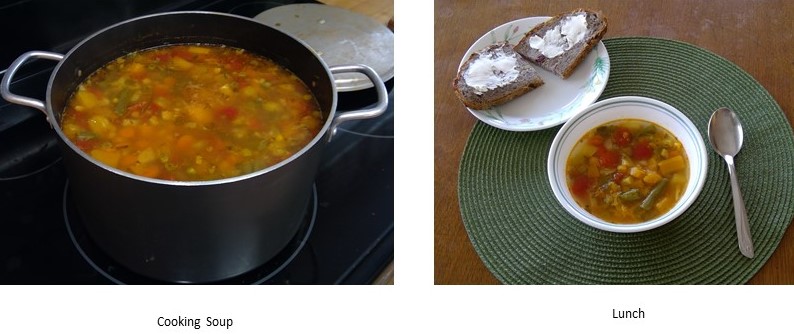
I stayed home from church today. I stayed to make soup with the Holy Spirit. Not just any soup mind you, but my own Vegetable Soup. You know the kind, soup filled with chopped fresh potatoes, celery, carrots, turnips, garlic and shallot and fresh herbs. All of them carefully chopped up into bit sized pieces.
There is something comforting about chopping vegetables, watching the pile grow. Each vegetable adding their own special color, fragrance, and appeal to the pile. Shallots and garlic add their pungent scents, while potatoes add earthiness and carrots and tomatoes add a bit of sweetness. I did notice that the carrot coins kept rolling around the counter as if they wanted to escape. Celery’s spiciness is always appealing to me. I love the color contrast between the red pepper and the parsley it always makes me smile and HS, that’s Holy Spirit for those of you not on speaking terms, said, “my favorite is the hot banana pepper you add in just the right amount to give a bit of heat to the soup. Please don’t tell Jesus that he thinks I’m weird.”
HS, and I discussed the value of each vegetable and whether or not it was suitable for such a wonderful soup. We pared and peeled when needed and over-all we decided I had picked good vegetables from the market. HS also reminded me that I had some fresh tomatoes that would add a nice bit of freshness. These were the last from my garden, so I offered a prayer and HS blessed them. I mean you can’t have too many prayers or too many blessings, can you?
I then went out into my garden and HS and I picked rosemary, sage and fennel. Thanking each one for their contribution to the soup. We only took a little of the thyme because it needs to grow a bit more, it’s a bit over picked, and HS said the basil was just too tired and needs to go live with her now.
HS asked if I had any frozen or canned vegetables available and looking through the freezer, I found a packet of squash and peas adding them to my growing pile of vegetables. In the pantry, I found corn, beans, and garbanzo beans which when rinsed to remove excess salt (who wants that in their soup) added them to the bowl.
After browning the shallot and garlic, adding chopped fresh turmeric and a couple strands of saffron (yes. I use saffron) I dumped all of the chopped, frozen, and canned veg’s into the pot along with vegetable broth, water, and all of the chopped herbs. HS asked me “will you be adding the secret ingredient” and I said “Shhh, If I tell it wouldn’t be a secret.” HS blessed our efforts and our soup is now simmering to wonderful goodness. We are currently considering baking a loaf of bread.
I suppose you think I am weird, imagining I am cooking alongside the Holy Spirit. Well one, I don’t care what you think, and two, how do you know I wasn’t. You see I often feel I am not alone, that someone walks beside me, or sits with me as I read. I guess I could be insane, but I rather think that it doesn’t matter. I sit and meditate, I offer prayers, and they must go somewhere don’t they. So why couldn’t the Holy Spirit come and spend time with me as I cook?
I’m not one to run around and brag or tell people “Jesus saves” (he doesn’t by the way, but I’ll save that thought for later). I rather let what I do and say inform people. I will share this soup with others, guests, (Luke hint, hint) and of course my husband will enjoy our efforts. I have been known to take soup to those who need it because feeding others always brings a smile to their faces, and mine, besides it is a mandate of the Holy Spirit.
To create something that will nourishes others is such a wonderful feeling. To feel the vegetable in your hand, pick it from the ground or vine gives me a connection with all creation. I know where my food comes from, how it was grown I watched the sun shine on the baby plants and the rain water it. I watched as the bees pollinated my tomato blossoms and herb blossoms and we shook the dirt off of potatoes, carrots, and onions, so yes, I know where my food comes from and who to thank. I am grateful for the opportunity to spend time with the HS to offer my thanks for food that feeds my body as her presence feeds my spirit. So, if I think the Holy Spirit is right there with me in the kitchen it means I know who to thank for all I have received.
“Ah, Ruth”
“Yes HS”
“Why not share your recipe and a prayer, now that you have made everyone hungry?”
“What a wonderful idea.”
“Ok, here is my Basic Vegetable soup recipe for you to change up and make your own.”
My prayer for you is:
Holy Spirit, we ask you to bless the ground that nourished our vegetables, the sun that shone upon them, and the rain that watered them. Bless the hands that harvested and carried them to us and bless the hands that prepared them. May this soup bless our bodies as you bless our souls. AMEN
Ruth’s Vegetable Soup
(This recipe freezes well)
4 cups vegetable broth or 2 cups broth and 2 cups water
1 tablespoon olive oil
1 tablespoon butter
Vegetables: (all vegetables are optional, add meat if you wish)
Potatoes, diced
Turnips, diced
Carrots (diced), Peas, Corn either Fresh, frozen, or canned
Celery, diced
½ of a small to medium shallot, diced
1-3 garlic cloves, minced,
1 15oz. Can diced tomatoes
1 or 2 medium fresh tomatoes, diced
½ to 1 red pepper, diced
Either 1-3 small hot banana Peppers, or 2 chipotle peppers, (+1 to 2 tsps.
adobe sauce), Diced
Spices
and Herbs: (change up the herbs to your taste)
1 teaspoon dry Turmeric or 2 teaspoons finely chopped fresh
Turmeric
few threads of saffron
1 teaspoon dried thyme or 2 teaspoons fresh thyme
½ teaspoon Herbs de Provence
2 teaspoons fresh rosemary
2 fresh bay leaves
Sea salt and fresh ground pepper to taste
Directions:
Melt the oil and butter in a large soup pot, add the onions and garlic. Add the turmeric and saffron, cook until the onions are soft and golden. Add the celery and peppers to the pot stir until covered in the turmeric liquid. Add the rest of the vegetables, broth (or broth/water), herbs and spices. Simmer for 1 to 2 hours until all vegetables are “al dente.” Serve hot with fresh bread. If you wish top with sharp cheddar cheese and chives.
Note: This is an easily modified recipe. You can add squash, or other vegetables, or change herbs or spices (I use Turmeric because of its anti-cancer properties). Fresh Parsley is lovely. You can add meat to this but I am a vegetarian so that is problematic for me.
Ruth Jewell, ©October 13, 2019
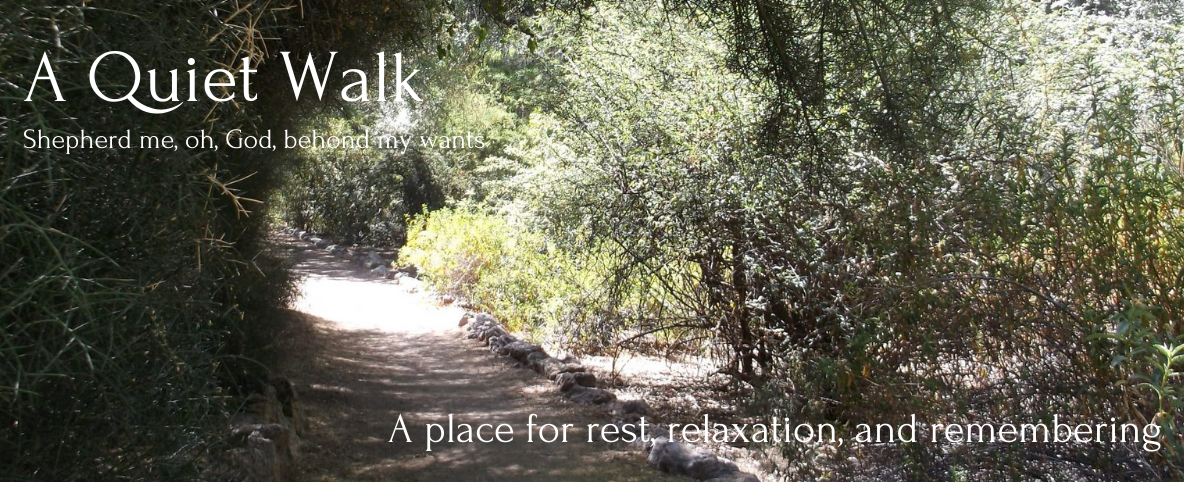


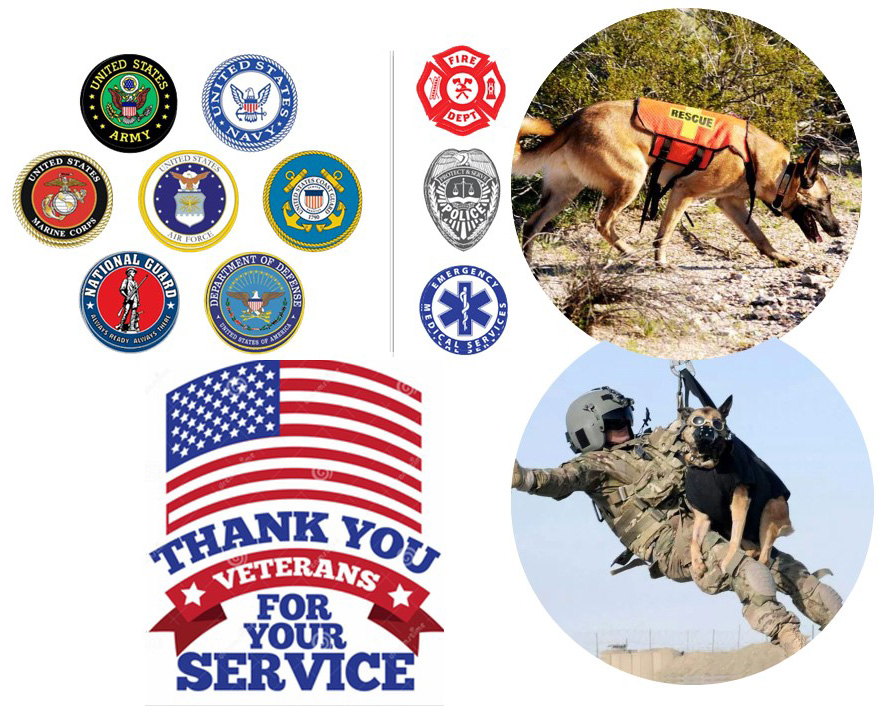 THANK YOU FOR YOUR SERVICE
THANK YOU FOR YOUR SERVICE
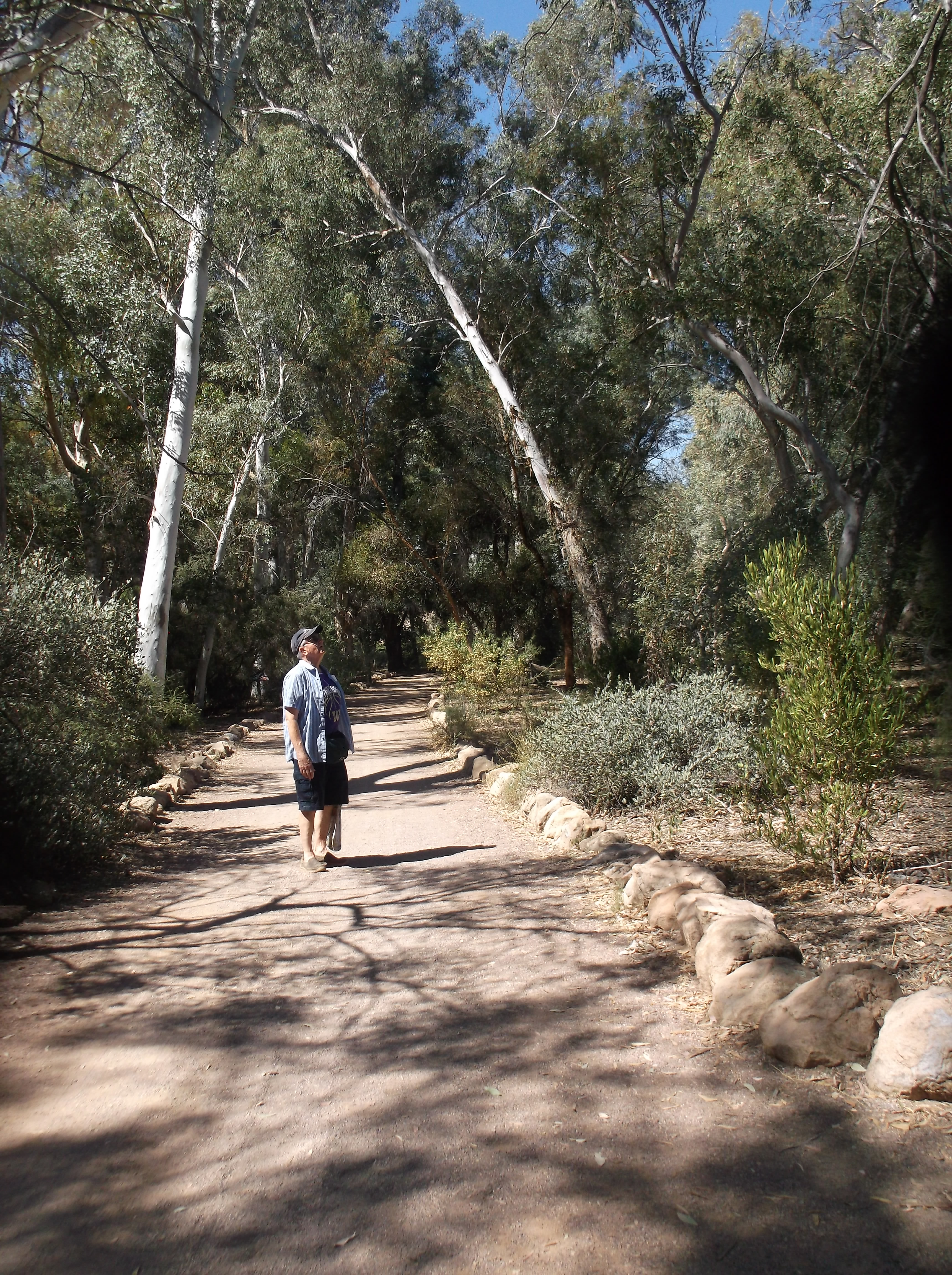

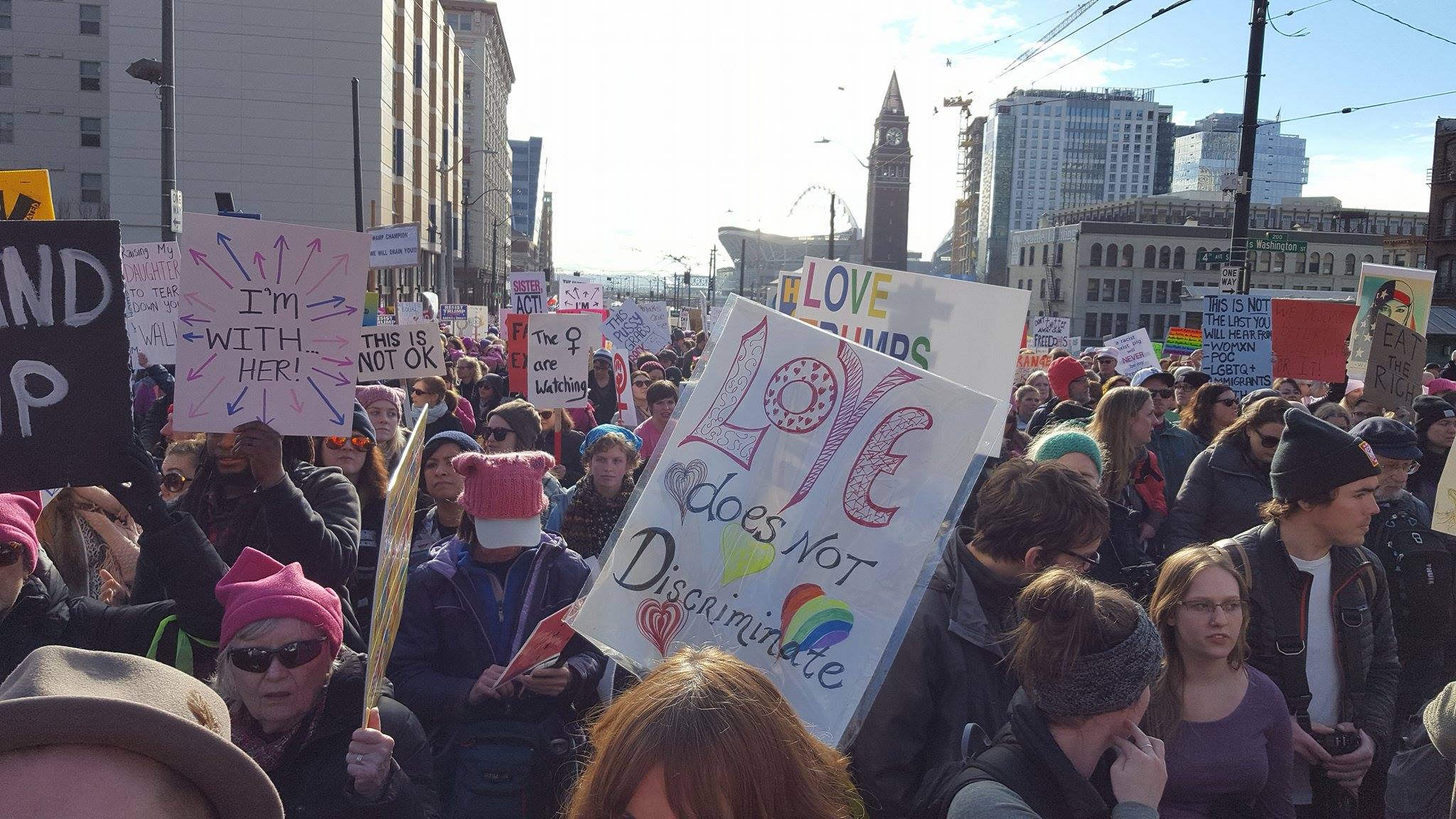



 My Mother 1988
My Mother 1988
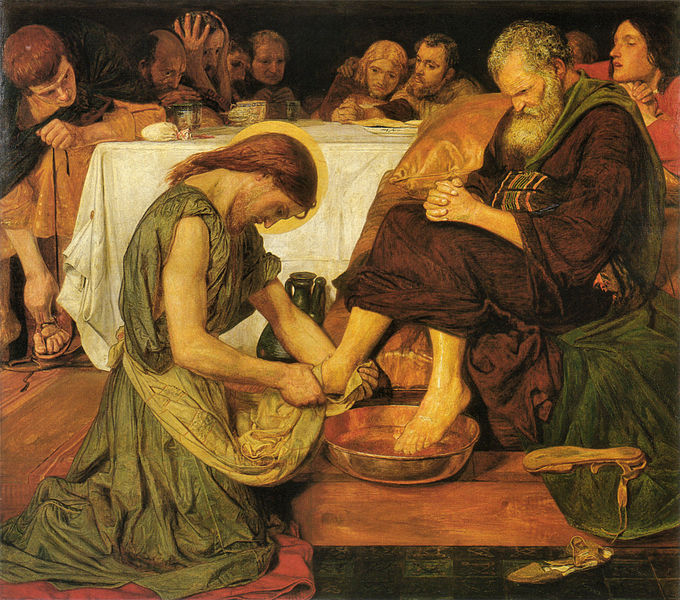 Jesus Washing Peters Feet
Jesus Washing Peters Feet





